I’m always thrilled by new software releases because they consistently introduce game-changing features and functionalities that can significantly boost your business. Each update brings exciting enhancements in performance, reliability, flexibility, usability, and security, making the product more powerful and easier to use. However, with a new software release, technically outdated functionality might get deprecated (being in maintenance mode with no new technological changes) or even get desupported (removed from the software deliverable).
In this Blog, I want to highlight the significant behavior changes you must be aware of if upgrading from Goldengate 19c or 21c to the latest GoldenGate long-term release 23ai. The key takeaways are:
- The GoldenGate 23ai software is delivered for the Microservice Architecture only. The Microservice architecture has been available since Goldengate 12.3 in 2016. If not already done, you must now migrate from classic Architecture to Microservice Architecture. To make the process easy, Oracle also provides a Migration Utility [Patch 33565581].
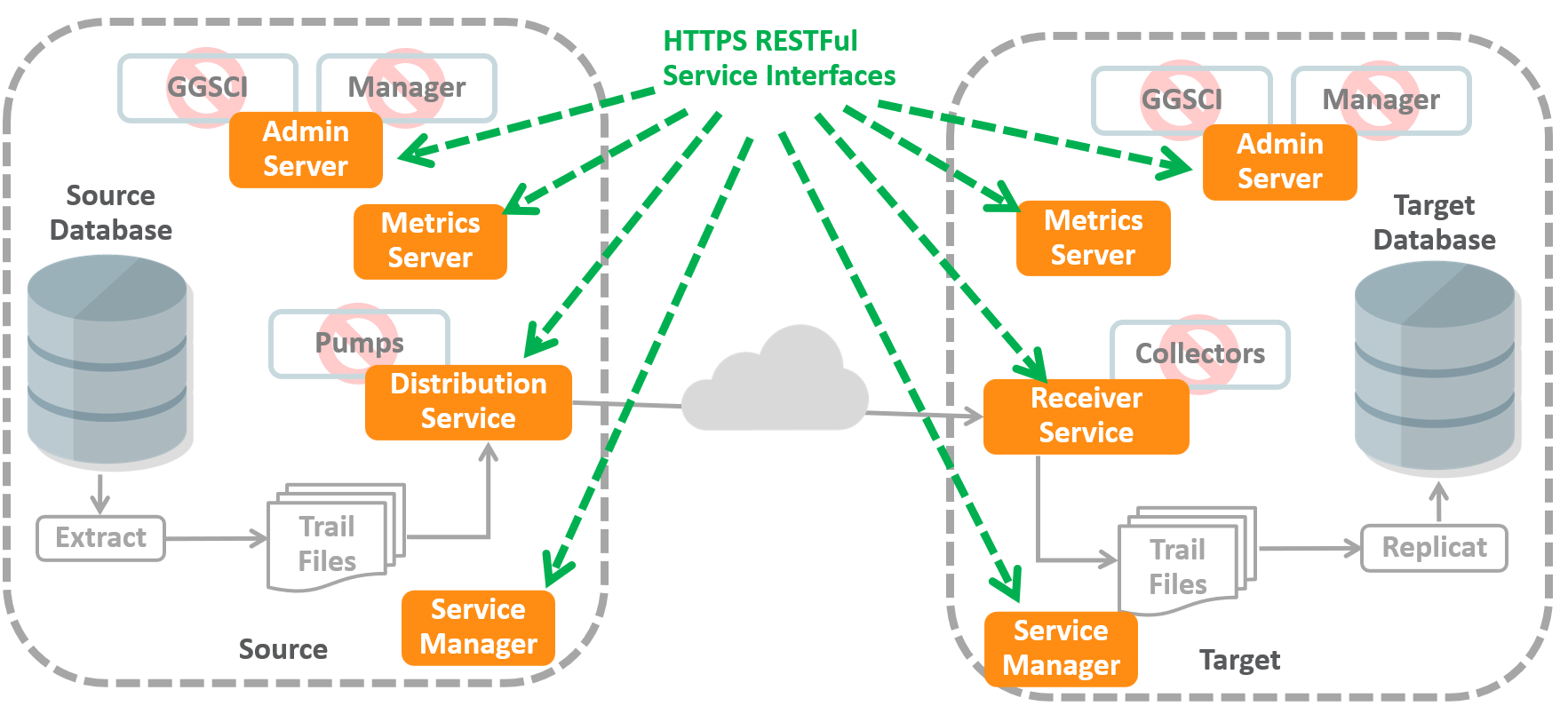
- Oracle Database customers upgrading from the earlier long-term Release of 19c to the current long-term Release of 23ai should remember that classic Extract has been desupported since GoldenGate 21c. If not already done, upgrade to the integrated Extract before the upgrade. GoldenGate itself provides an upgrade command for Extract.
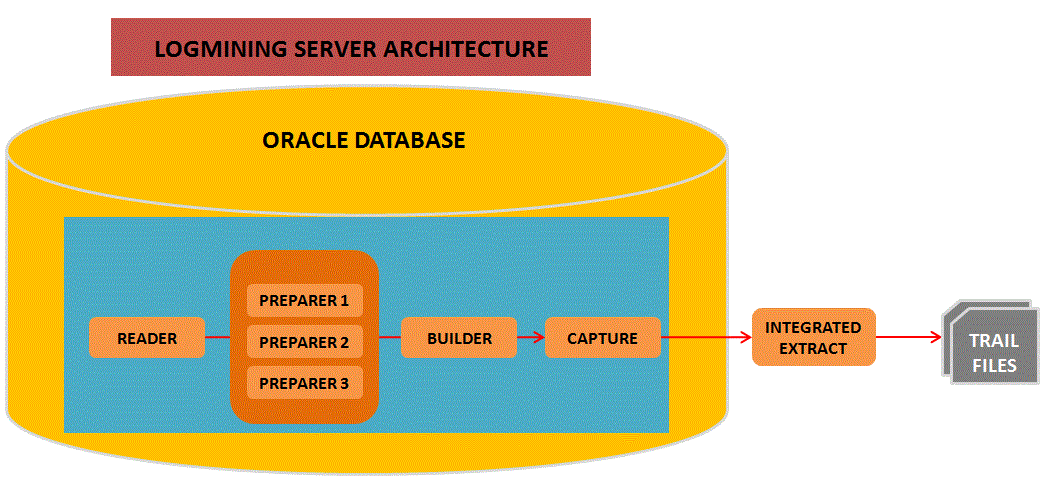
- Please notice that the Per-PDB-Extract is the only supported Extract for the Oracle Database 23ai, except if you are using a DownStream Capture environment! When using DownStream Capture, you have to use the Root-Level-Extract which also means that you have to set the Streams Pool [see my previous Blog Post GoldenGate: How to manage the Streams Pool in the Oracle Database?].
- If you’re still using GoldenGate 19c, you’ll find that upgrading to the next long-term release, GoldenGate 21ai, offers significant convenience. When you are installing GoldenGate, you don’t have to choose the GoldenGate build for a specific Database version anymore. The software is distributed as a unified build. With a single GoldenGate instance, you can manage GoldenGate Replication from Database 23ai down to the last supported version of the Oracle Database – No additional GoldenGate software installations are required!
Since Goldengate 21c, the instant client libraries for Oracle Database are included in the release. This also means deploying GoldenGate in a mid-tier (HUB model) becomes much more straightforward—no more downloading and installing separate Oracle Client software for each database version.
|
|
|
|
|
- You must not set the ORACLE_SID, and ORACLE_HOME pointing to database server software. Instead, ORACLE_HOME points directly to the GoldenGate instant client directory ($OGG_HOME/lib/instantclient). Similarly, the LD_LIBRARY_PATH is using the GoldenGate $OGG_HOME and $OGG_HOME/lib/instantclient, eliminating dependencies on the Oracle Database. As a bonus, the SQL*Plus program is part of the GoldenGate software deliverable!
- There are multiple changes regarding the user experience field. First, you notice that the WEB-UI has another look & feel. However, the improved performance and simplified pages and forms are more important. This is especially true for deployments with many processes and components. Furthermore, new 23ai features and functionalities, such as Trail File Management, have been added and are part of the WEB-UI.
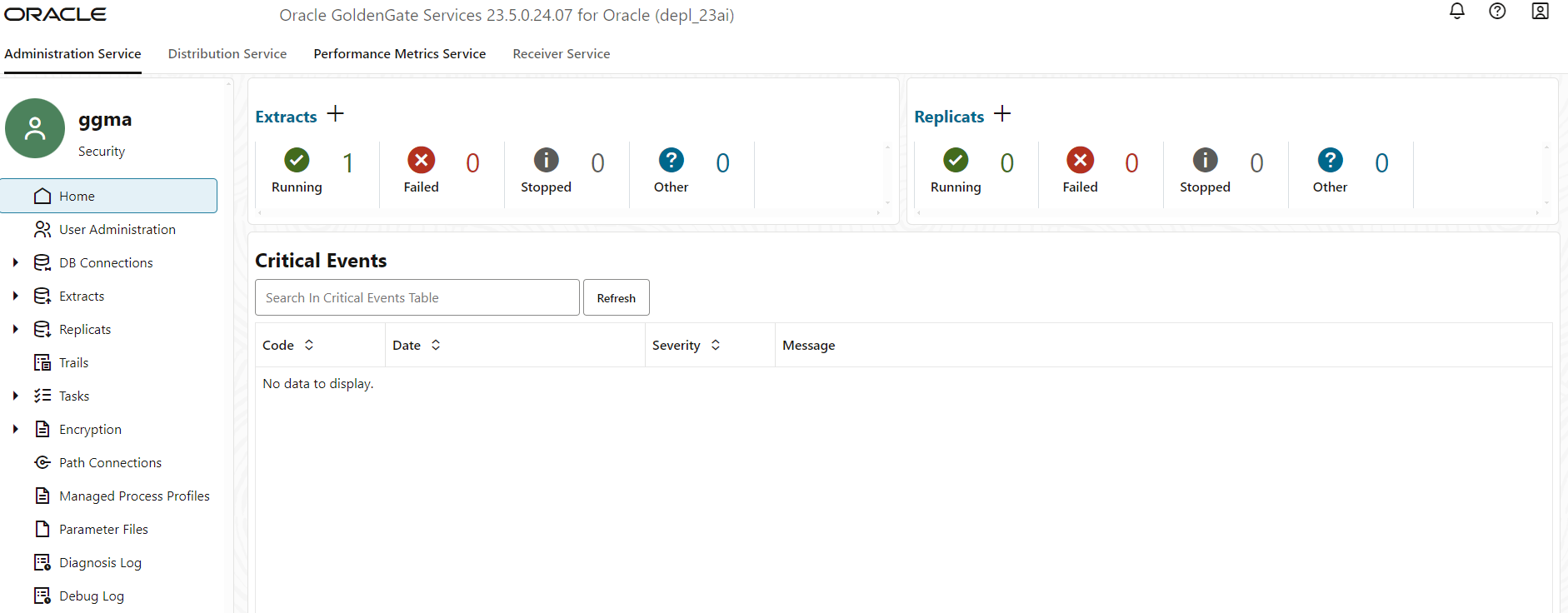
- The flow within the GoldenGate deployment assistant (oggca.sh) is more straightforward to use. Those changes are not necessarily behavior changes, as the underlying REST API calls being made are still the same. This is more of a visual change. In the deployment assistant (oggca.sh), you can only provide the certificate information in PEM format and cannot use Wallets anymore. This, however, is not a big issue as you can extract the necessary certificate information from the existing wallets. BTW: If you are used to wallets, you can extract the necessary information into the newly required PEM format.
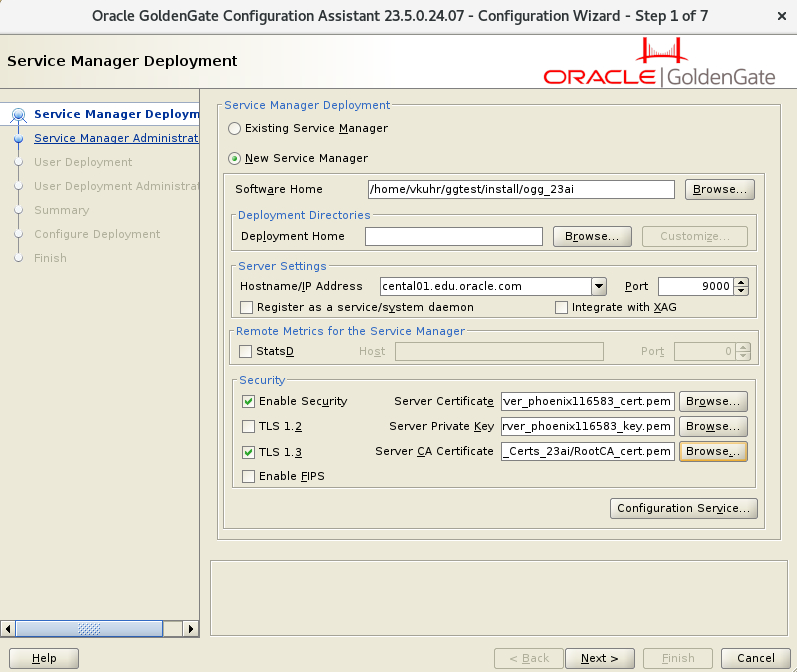
- You used PL/SQL calls within the Oracle Base to grant GoldenGate user administration privileges within the Oracle Database. This is simplified: Now, with Oracle Database 23ai, you use the database roles OGG_CAPTURE and OGG_APPLY, and you provide the privileges by granting the roles within SQL.
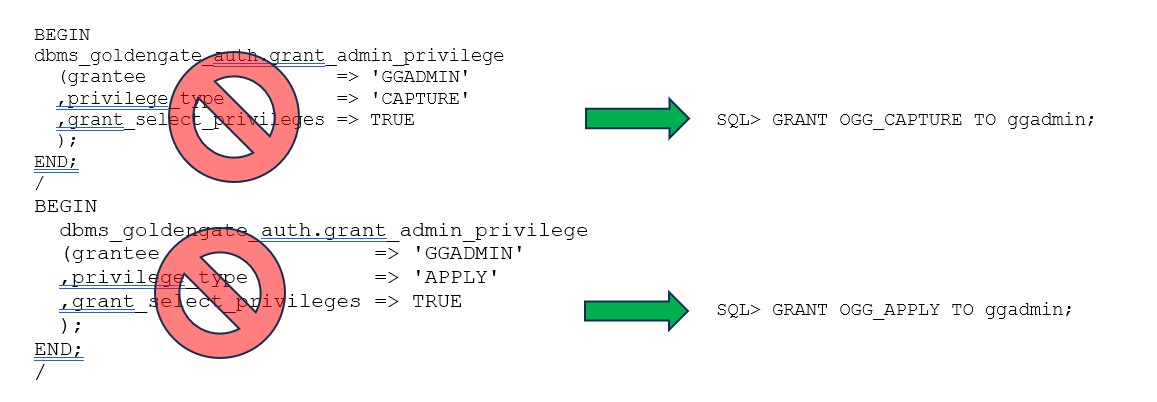
- Oracle recently added the BOOLEAN datatype to the Oracle Database. Customers working in heterogeneous environments using the BOOLEAN datatype should be aware that the older representation of 0 or 1 in GoldenGate is now provided as a real BOOLEAN datatype (TRUE or FALSE).
With each new release, additional parameters are introduced. Some older parameters may become obsolete or deprecated, and those that have been deprecated for a long time might even be unsupported:
- You must use the USERIDALIAS for database connections, now. Older versions of specifying the USERID is not allowed.
- Blowfish algorithm, earlier used for password management and Trail file encryption, is desupported.
- Within Goldengate 23ai, the parameters GETREPLICATE and GETAPPLOPS are desupported. Those parameters were mainly used in cascading environments (GoldenGate replicates changes from Database A to Database B, and the changes on Database B are further delivered to Database C). Rather than GETREPLICATE and GETAPPLOPS, you may want to work with TAGs.
- The Trace Table is also desupported in GoldenGate 23ai. Trace Table parameters and commands are not exiting anymore.
- The 6-digit Trail File is not supported anymore. Customers must use the 8-digit Trail file.
I highly recommend checking the ‘What’s New Section’ within the GoldenGate documentation for 23ai and, if migrating from 19c, for GoldenGate 21c to have a complete list of changes.
This section is your go-to source for the latest features and provides crucial information about deprecated and desupported elements. As it is essential to know about deprecated and desupported features, the Upgrade guide also references the What’s New part of the documentation. For the most up-to-date insights, I highly recommend diving into the Release Notes for GoldenGate that are updated by each GoldenGate Release Update (OGGRU).


